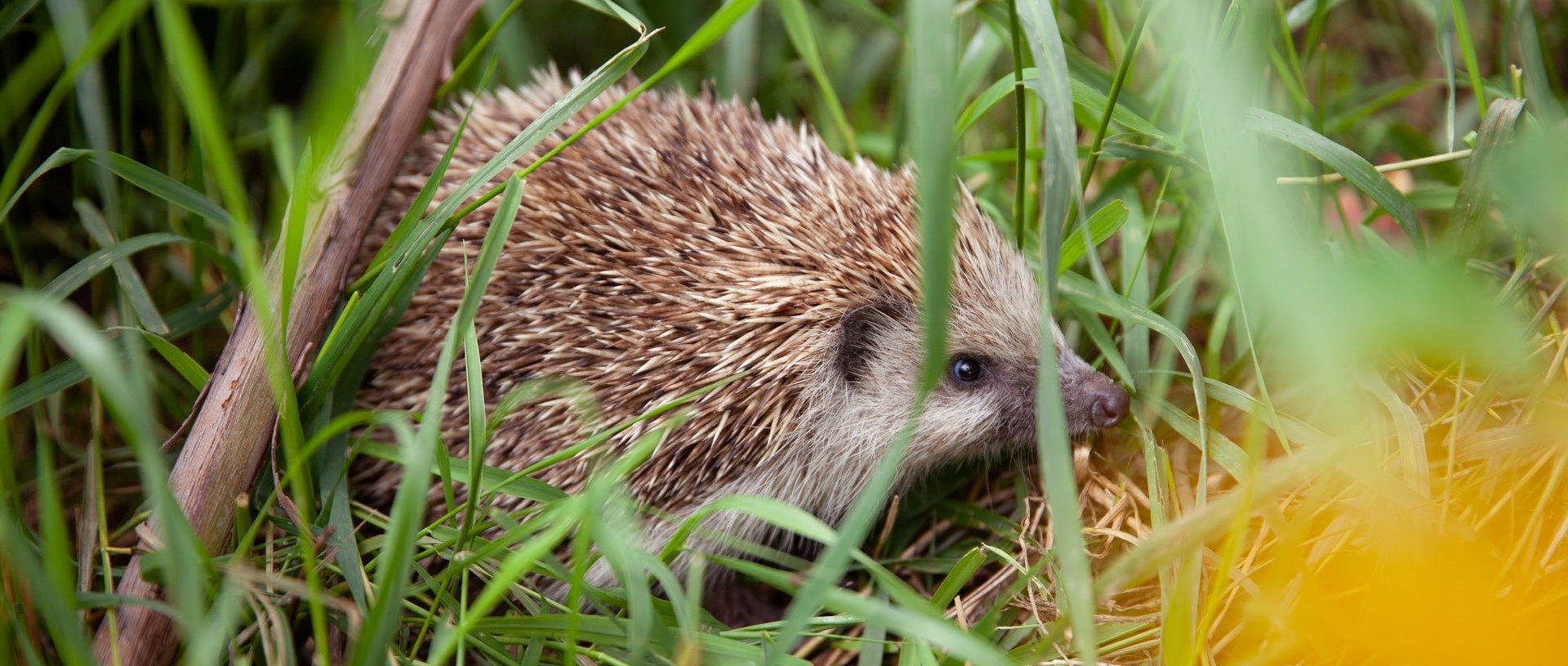The University of Leeds’ Sustainability Team have been working tirelessly before and during the pandemic to make our campus a greener place for wildlife. Some of their previous projects include the renovation of Roger Stevens’ pond, the sustainable garden outside the Faculty of Biological Sciences, as well as tackling flood management in Bramley Park. Their latest endeavour focuses on accommodating one small animal in particular: hedgehogs!
You’ll all be familiar with the resident rabbits on campus, found in just about every green patch, but the campus’ hedgehogs are much more inconspicuous. They are nocturnal and naturally timid creatures so only really venture out at night. In the day they can be found tucked away under piles of leaves & sticks or inside bushes.
Hedgehog survival is unfortunately threatened by various human activities, the biggest one being habitat loss due to farming. Hedgehogs aren’t even truly safe in gardens. You may remember being told to check for hedgehogs before setting light to a bonfire since they provide the perfect habitats for hedgehogs. These animals can also fall victim to bush shearers and lawnmowers.
So who would’ve thought an urban university campus would be a hedgehog refuge? Well, the University’s Sustainability Team aims to make our campus as hospitable as possible for these tiny animals, achieving silver accreditation for a hedgehog friendly campus in the process. A team of volunteers routinely checks, maintains, and enhances campus for our resident hedgehogs, by planting the perfect flora and even learning how to spot an unhappy hedgehog in need of help!
Conversation efforts around the globe often choose a “cute” animal to be the face of their work, to help draw in attention and support from the wider public. Helping to protect this “poster animal” leads to benefits for all of the surrounding plant and animal species. Also, the abundance of “poster animals” often reflects the health of the ecosystem that supports them. Therefore, to save the public’s favourite creatures, conservationists have to think about the bigger picture.

The University’s Sustainability Team is no exception. Hedgehog protection is just the tip of the iceberg of a wider biodiversity project on campus to help reduce pollution and improve the conservation of the resident birds and bats. This project transcends Leeds, with team members collaborating with the University of Warwick and hopes to grow to an international scale, working with youth groups world-wide.
So how can you get involved? The team has a Facebook group called “Biodiversity at the University of Leeds,” which is open for anyone to join and receive updates on new projects. You can also sign up to their newsletter on their website. Despite on-campus activities being restricted at the moment due to the on-going pandemic, volunteers are open to do just about anything. If you need further incentive a certain level of involvement in the Sustainability Team even earns you an extra accreditation at the end of your degree!
Future and ongoing projects involve the bold ‘2023 Plastic Free’ project which aims to remove all single use plastic from campus in two years’ time. With the gradual opening of lockdown, the team are hoping to double down on their efforts, with more volunteers on campus and hopefully we’ll begin to see a few more hedgehogs running around very soon!
By Catherine Upex
Header image from Unsplash/Alicja Gancarz

